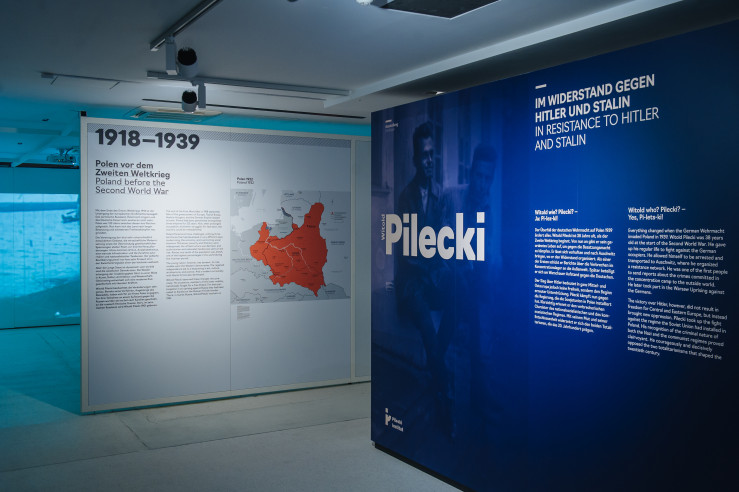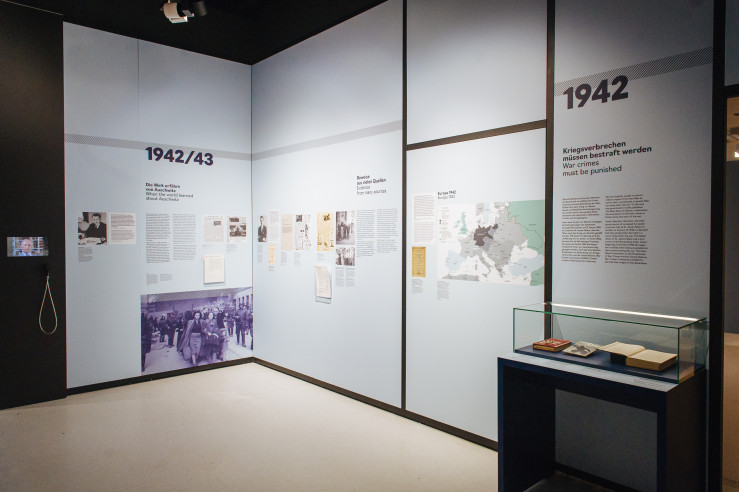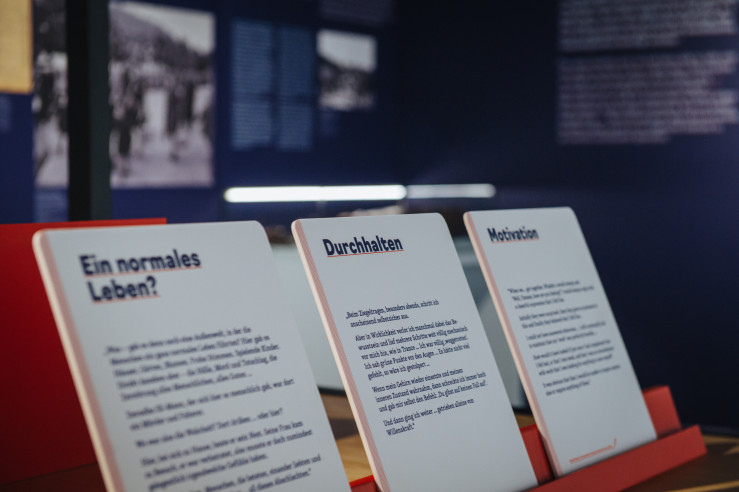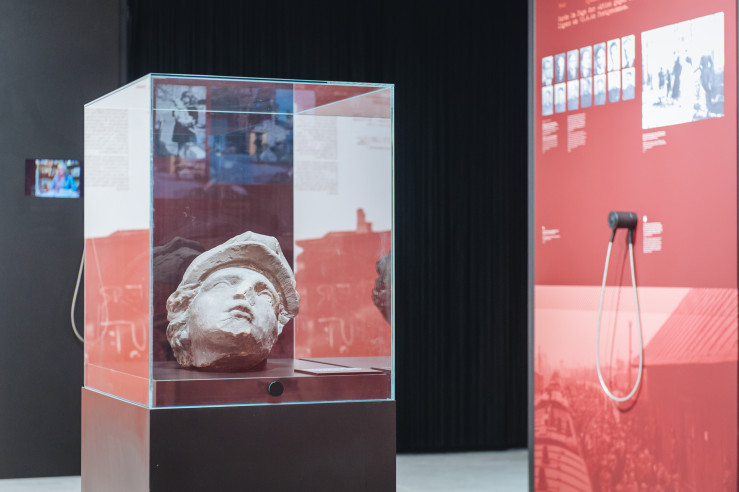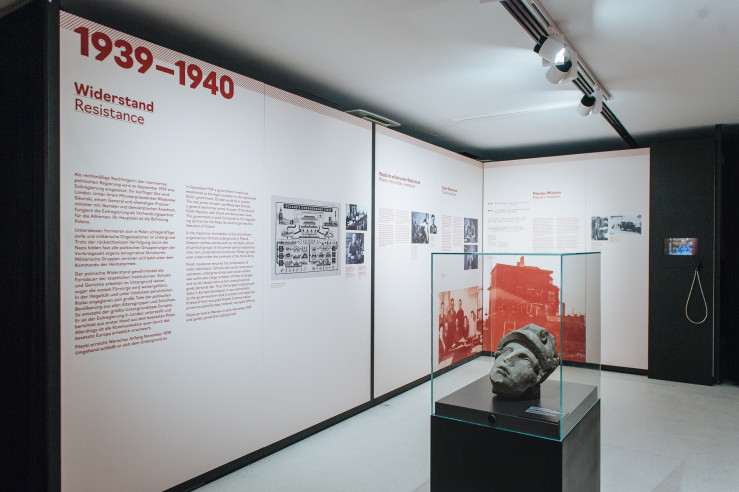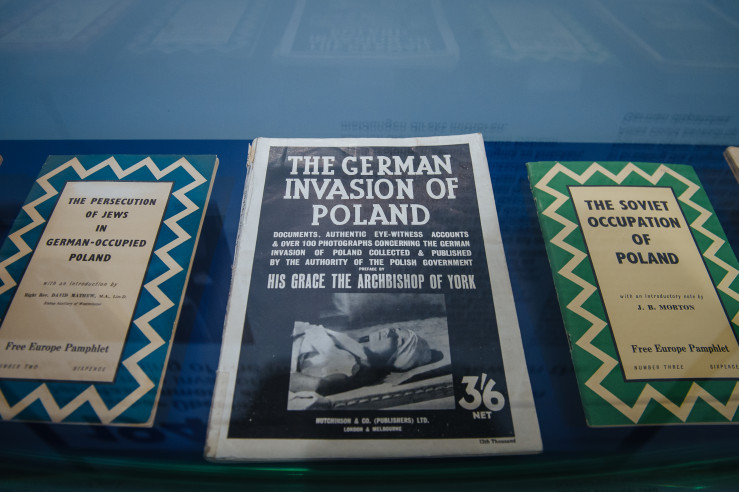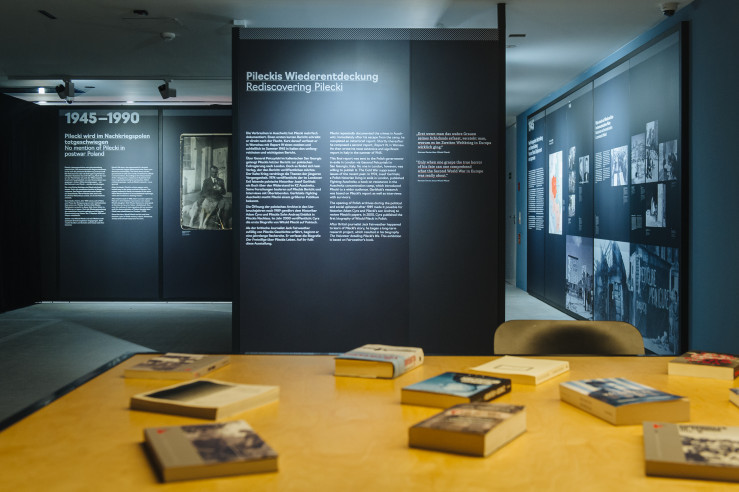Permanent exhibition on Witold Pilecki - Instytut Pileckiego
09.06.2024 (Sun) 13:00
Permanent exhibition on Witold Pilecki
"Witold Pilecki. In Resistance to Hitler and Stalin" - exhibition opening on 26.09
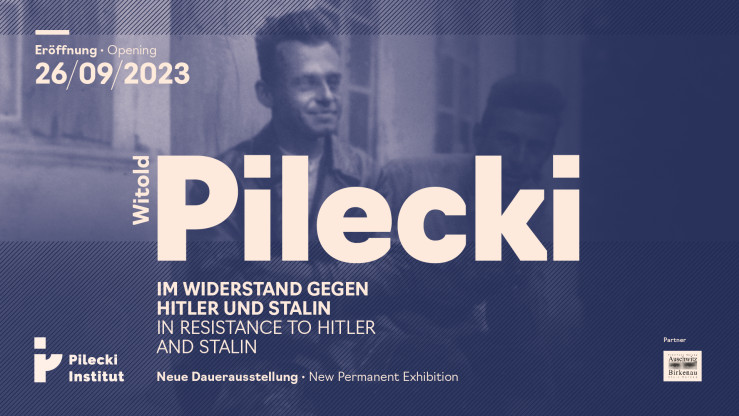
New permanent exhibition: “Witold Pilecki. In Resistance to Hitler and Stalin.”
On the fourth birthday of the Pilecki-Institut Berlin we cordially invite you to the opening of our new permanent exhibition. For two years we have been working intensively on our new permanent exhibition. In the process, we have made extensive use of the feedback we received from visitors to the first version of the exhibition.
The exhibition "Witold Pilecki. In Resistance to Hitler and Stalin" was co-financed by the Polish Ministry of Culture and National Heritage as part of the public task "The Realisation of the permanent exhibition "Witold Pilecki - Polish History" at the headquarters of the Pilecki Institute branch in Berlin".

Exhibition opening (event schedule below): 26.09, 5 pm | Pariser Platz 4A, 10117 Berlin | Registration: https://forms.gle/qNAyKpCKtefWCEou7
Witold Pilecki, our namesake, is the only known person who voluntarily went to Auschwitz. Based on his biography, our new exhibition not only documents his life, but also takes a new look at the history of the Polish underground state and its numerous efforts to inform the world about crimes committed by Nazi Germany.
Witold Pilecki's life story reflects several dimensions of the Polish experience of the 20th century: Pilecki was at once a victim of two totalitarian regimes, a resistance fighter against them and an important witness to the 20th century. Witold Pilecki's life was dedicated to the struggle for a free Poland and the fight against the two great totalitarianisms of the 20th century. We are pleased to present this unique, gripping life story against the backdrop of the 20th century in our new permanent exhibition.
More about the exhibition
The invasion of Poland by the Wehrmacht in 1939 changed everything. Witold Pilecki was 38 years old when the Second World War began. Formerly a soldier fighting in the Polish-Bolshevik War, he gave up his orderly life as a husband, father and landowner, and embarked on an extraordinarily daring mission. Like in Hollywood, only real: he got himself arrested and taken to Auschwitz, where he organised a resistance movement and informed the world about Nazi crimes. After successfully escaping, he took part in the Warsaw Uprising against the German Nazi occupation regime. In 1948 he was executed by the communist regime in Poland, his body was never found.
Unlike in Western Europe, the victory over Hitler in Central and Eastern Europe did not lead to democracy, prosperity and security, but paved the way for Soviet-communist dictatorships imposed from outside. Witold Pilecki’s struggle for a free Poland was now directed against a communist regime installed by the Soviet Union. With clear-sightedness, he recognised the criminal character of the National Socialist and Communist ideologies. The courage and determination with which he opposed the two great totalitarianisms of the 20th century still inspire us today and make us think about the value and fragility of freedom.
The event evening
There will be alternating guided tours and short panel discussions. Together with our invited panellists we want to reflect on the following topics:
- “The role of the witness” – what role do testimonies and accounts play in historiographical works on the Holocaust. How have their accounts shaped mainstream cultures of remembrance? How does Witold Pilecki fit into this context?
- “Reports on the Holocaust” – On which sources is our current knowledge about the Holocaust based? What role do Witold Pilecki’s reports play in this context?
- “Do democracies need heroes?” – Witold Pilecki and anti-totalitarianism as a philosophy of life: why democracies are inherently fragile, and totalitarianism is not a closed chapter of the 20th century but an ever-present danger that must always be opposed.
- “Never Again” in 2023: How much ritual, how much lived reality?
Imprint
Organiser: Pilecki Institute
Curators: Hanna Radziejowska, Jack Fairweather
Project Manager: Anna Bobczuk
Design: Franke | Steinert. Exhibition design for museums
Scientific advisors: Dr. Piotr Setkiewicz, Prof. Jochen Böhler
Partner of the exhibition: Museum Auschwitz-Birkenau
Venue of the exhibition: Pilecki-Institut Berlin, Pariser Platz 4a, 10117 Berlin
